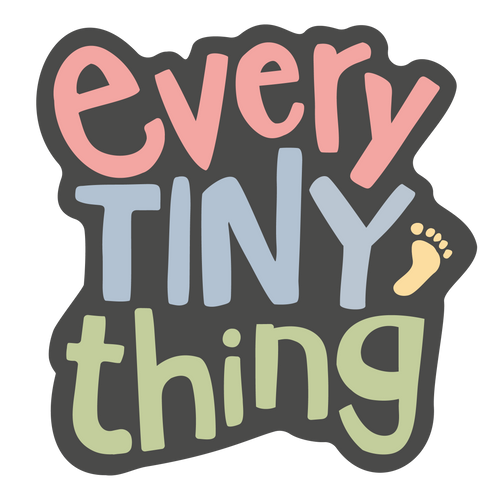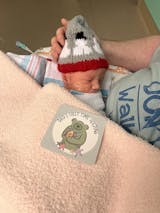
When your baby is in the NICU, constant monitoring becomes a normal part of your daily routine.
Your child’s breathing, heart rate, oxygen saturation, and other vital signs are monitored around the clock, and having a clear indication of your baby’s vitals at all times can be very reassuring!
When your family leaves the NICU, it can be disorienting to care for your baby without the constant input from monitoring devices. While there are some tiny “graduates” who will go home from the NICU with apnea monitors or other devices, many babies will go home accessory-free, which can make new parents a little (ok, a lot) nervous! This can leave NICU parents wondering how they can monitor their baby at home?
Rest assured that the NICU care team would never send your baby home until they’re confident that your little one is healthy and thriving. The truth is, nothing beats the care of your presence and practicing safe sleep with your baby!
There are lots of “smart” monitoring devices on the market that claim to accurately monitor your baby’s heart rate and breathing, sounding an alarm if issues are detected. That can sound like a must-have for your family, but the American Academy of Pediatrics (AAP) does not recommend the use of non-FDA approved monitoring devices for healthy infants.
Here’s why:
- Smart monitors are not approved by the Food and Drug Administration because there is no scientific evidence that they prevent potentially fatal problems in otherwise healthy babies.
- In fact, false alarms are a common occurrence- and that can lead to even bigger problems! Worried parents often rush to the ER after a false alarm where their child may be subjected to unnecessary blood tests, x-rays, or other procedures just to err on the side of caution.
- Smart monitors have wearable sensors that can easily dislodge if your baby kicks or rolls. An active baby could have multiple false alarms every night, interrupting your much-needed sleep and triggering LOTS of unnecessary worry.
- It’s completely normal for baby’s vital signs to fluctuate a bit, but smart monitors can’t differentiate between a normal shift and a dangerous drop, so it alarms every time your baby’s stats change. That leaves you potentially panicking when there’s no real danger to your little one.
- Smart monitors can be prohibitively expensive for many families, especially since they’re not actually proven to work! Instead of wasting money on unreliable devices, the AAP recommends using standard video/audio baby monitors and adhering to safe sleep practices.

